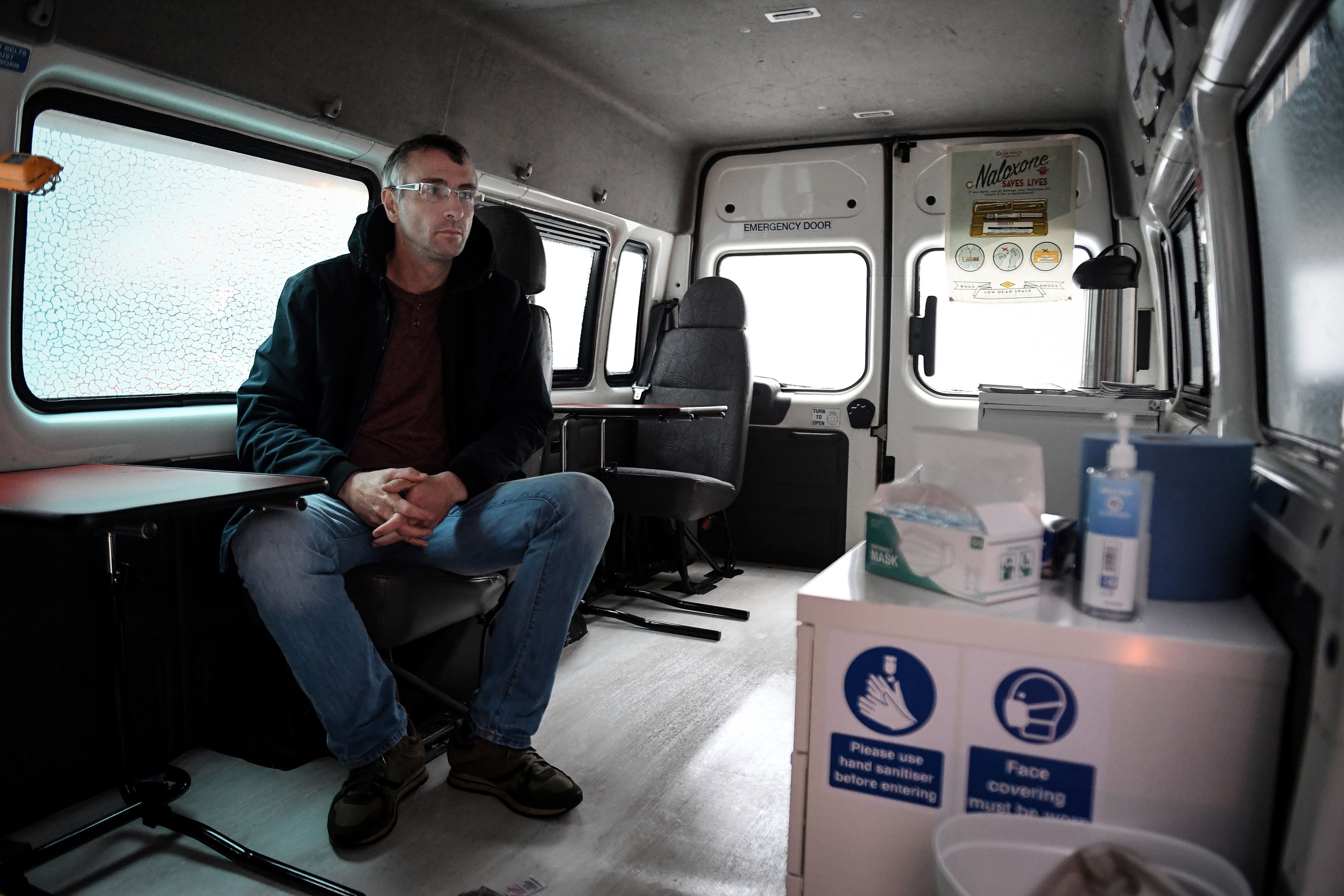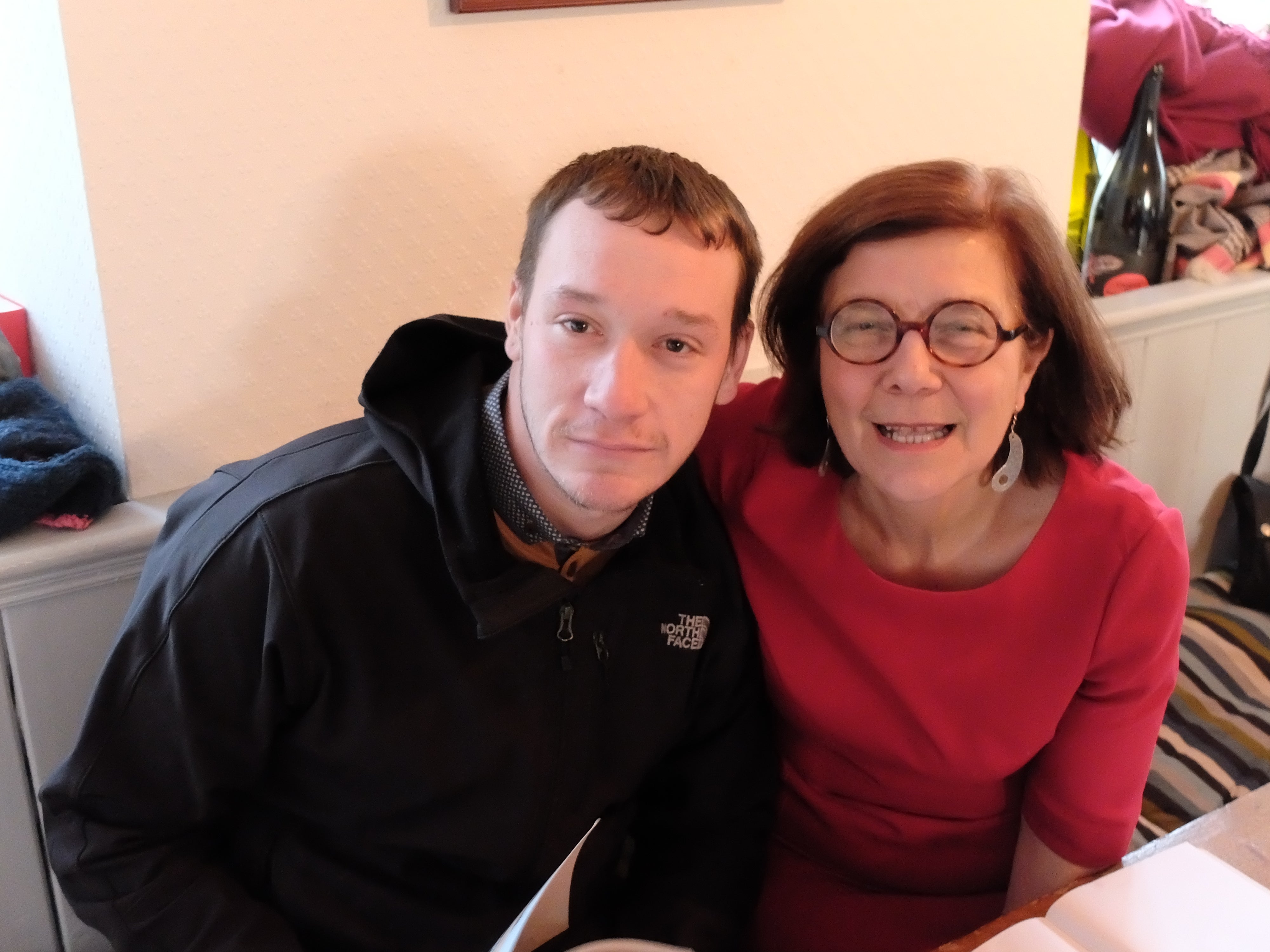Drug treatment boss throws down gauntlet to authorities in bid to open life-saving overdose prevention service
Exclusive: Exasperated charity ‘standing up for local residents’ with self-funded plan to reduce drug harms and stop discarded needles littering streets

The boss of a major charity on the frontline of Britain’s drug deaths crisis has challenged authorities by announcing that he plans to open potentially life-saving overdose prevention facilities in a matter of months – with or without their help.
As drugs charities brace for a feared influx of lethally strong synthetic opioids to hit the UK, experts are urging Rishi Sunak’s government to end its longstanding opposition to facilities where people can consume illicit drugs in the presence of trained staff armed with the overdose reversal drug naloxone.
While Scotland is now pushing ahead to create the UK’s first official facility in Glasgow, after a game-changing intervention by the country’s top legal authority put an end to a long-running Holyrood-Westminster dispute, hopes for similar services in England and Wales are yet to materialise.
Exasperated by years of fruitless discussions while drug deaths mount, and bolstered by developments in Scotland, Martin Blakebrough, chief executive of the charity Kaleidoscope has now told The Independent that he plans to pilot several “micro” drug consumption spaces in south Wales as early as this summer – potentially even sooner than in Glasgow.
“It’s an active debate we’re now having in Wales which I’ve basically forced onto the agenda, partly by saying, ‘We’re going to start this service with or without you,’” said Mr Blakebrough.
“We’ve been discussing this in Wales for 10 years, and we’ve done nothing,” he added. “The Scottish one gave me the confidence to say, ‘I’m going to blow your cover now, I’m going to cause a fuss about this,’ and at long last it’s gone up the political agenda.”
There are over 200 such overdose prevention services across 17 countries, including the US, Canada, France, Australia and Iceland. Some facilities have reversed thousands of overdoses, without a single death, while being proven to cause no increase in the number of people using drugs, generally reducing or having no impact on local crime levels, and often dramatically reducing drug-related litter and incidents of street injecting.
Despite this, the facilities have long been rejected – and even mocked – by the current Westminster government. Meanwhile, drug deaths have risen for 11 consecutive years in England and Wales to break grim new records, having nearly doubled since 2012.
But after activist Peter Krykant risked arrest in 2020 to offer such services out of a repurposed ambulance, Scotland’s lord advocate intervened last year to say such prosecutions “would not be in the public interest”. As a result, the UK government has now relented that it will not block such services in Scotland, potentially paving the way for others to follow suit in parts of England and Wales, dependent on the support of police and local leaders.

Kaleidoscope’s pilots will be limited only to a targeted number of drug users, to whom the charity already provides clean needles but is currently forced to send back onto the streets to consume their drugs.
While the charity warns it is vital to rapidly establish proof of concept in the UK before deadly synthetic opioids arrive en masse, Mr Blakebrough stressed the planned facilities’ importance in helping to clear the streets of discarded needles and prevent instances of people injecting publicly.
“I’m standing up for community residents who are fed up,” he said. “Come down to Cardiff and you will see people openly injecting, you will see discarded needles all over the place, and I think the scandal is – why are we tolerating this?”
Critically, Kaleidoscope has vowed to self-fund the new services if it cannot secure official backing. “Ultimately we’d prefer not to fund them out of our own resources. But there comes a point where if you don’t act, nothing changes,” Mr Blakebrough said.
Mr Blakebrough stressed that he was merely proposing to create a consumption space at a number of his charity’s existing needle exchange sites, at minimal cost and only open to around 30 or 40 selected drug users already in the community, in contrast to the new multimillion-pound centre being set up in Glasgow.
He said: “I have every sympathy when residents complain to me, ‘You’re giving needles for somebody to inject in my backyard.’ And I go, ‘What else can I do?’ So we need to do something about it. The only way I can think is: isn’t it better they come into my facility where they’re getting the needle anyway and just consume it in that premises? But it’s not a free-for-all for every drug user.”
Kaleidoscope has been holding talks with local leaders and has gained the backing of Senedd members among all four major parties, while Mr Blakebrough works to secure a memorandum of understanding with South Wales Police that he and his charity’s staff will not face arrest for facilitating the services.
Superintendent Mark Kavanagh told The Independent, “In principle, the force is supportive of delivering innovative and ambitious practices to reduce drug-related harm, and safe consumption is one of a number of potential health-led avenues which are currently being explored by partners”.
He added: “This is a complex undertaking and is therefore still a work in progress. Whilst this is being worked through, we are continuing to work closely with partners ... to minimise drug-related deaths and associated harms.”
Peredur Owen Griffiths, the Plaid Cymru chair of the Senedd’s crossparty group on substance use and addiction, said: “If anybody’s going to be able to pilot this well I think Kaleidoscope is one of the best-placed to do that because of their expertise in the field. They’ve got good relationships with communities and police, so it’s building trust on all sides really to check if this actually works in practice on the ground in Wales.”
“Most of civil society would see ... [it] is a positive thing because it eases some of the issues in the NHS, it releases police officers to be able to deal with other things, so there’s a rational reasoning behind why it works,” Mr Owen Griffiths added.
“Drug deaths are going up and up, so obviously there is a need for this,” he said, adding: “It’s making sure that people don’t die unnecessarily – it’s fundamental, really.”
Pat Hudson, a professor emeritus at Cardiff University whose 32-year-old son Kevin died following a heroin overdose in 2017, told The Independent: “I do believe my son would still be alive today had there been somewhere safe for him to go and inject in the centre of town in Carmarthen where he died.
“Instead, like many other people, he used a toilet in a department store, in Marks & Spencers, locked the door and overdosed, which is so easy to do when you’re acquiring heroin off the street, you don’t know the strength and dosage of what you’re taking. And of course nobody noticed because the door was locked and it wasn’t until someone realised it was locked for some time that they cleared the store, broke in and by that time it was too late.”

“I fully support this progressive move on the part of Kaleidoscope. If there’s somewhere people feel it’s safe to go and be monitored they would choose that,” said Professor Hudson, a member of the campaign group Anyone’s Child. “Also it would get more young people beyond the stigma attached to approaching the treatment services when their drug use has become a problem.
“If they’re regularly attending somewhere where they’re treated with some respect and care, they’re more likely to access treatment services at the crucial point when they first need it.”
Expressing concern over a feared influx of new potent synthetic opioids, which claimed at least four lives in a south Wales prison earlier this year, Professor Hudson said: “It’s an epidemic waiting to happen, and if we can get some of these centres up and running we will be able to tackle the crisis before it overwhelms young people and families like mine.”
A Welsh Government spokesperson said: “The use of overdose prevention vans or ‘safe injecting sites’, is a matter for the UK government as legislation on the misuse of drugs is not devolved”, adding: “We are working with partners across Wales ... to rapidly develop our response to the threat of synthetic opioids.”
Join our commenting forum
Join thought-provoking conversations, follow other Independent readers and see their replies
Comments
Bookmark popover
Removed from bookmarks